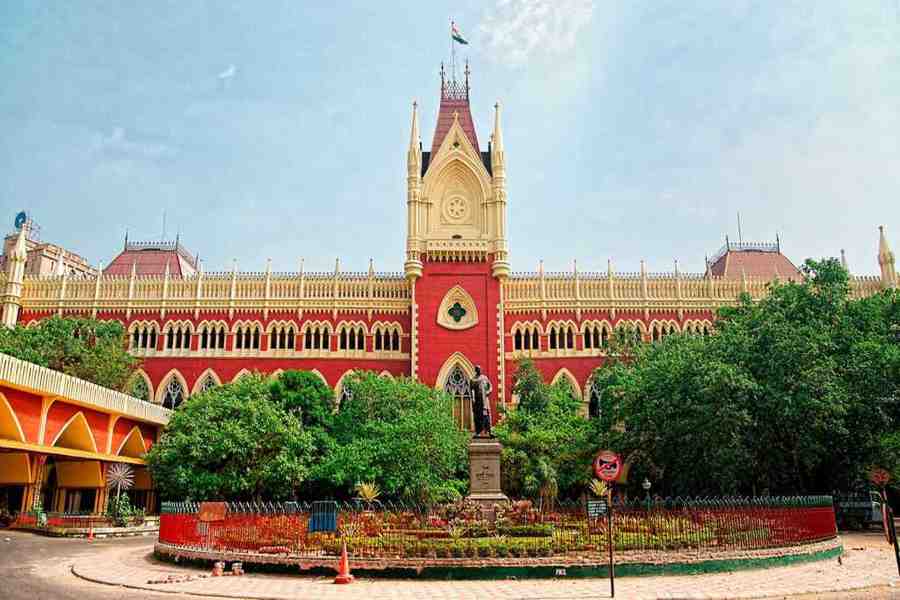Calcutta High Court on Tuesday declared as illegal the call for indefinite rail and road blockades from Wednesday by a few outfits of the Kurmi community.
A few Kurmi organisations in Bengal and Jharkhand had called for indefinite blockades from Wednesday to press for the community's demand for Scheduled Tribe (ST) status.
While a division bench headed by Chief Justice T.S. Sivagnanam passed the interim order following a public interest litigation (PIL), the Adivasi Kurmi Samaj decided to call off the agitation in the face of "pressure from the state machinery".
Ajit Mahato, the chief advisor to the Adivasi Kurmi Samaj, which is the prime outfit that gave the call for the agitation, said on Tuesday: "We have decided to withdraw the proposed blockade in Bengal because of tremendous pressure from the state machinery and police."
"Police arrested over a dozen of our leaders from various districts in false cases to stop our peaceful movement and that is why we have decided to withdraw our proposed blockade at two stations in the state. Our members will join the protest in Jharkhand," said Mahato.
In April, the Kurmi outfits had put up blockades on roads and tracks at two railway stations in Bengal — Khemashuli in West Midnapore and Kustaur in Purulia — for at least five days. The agitation resulted in the harassment of lakhs of people following the cancellation of trains connecting north, south and central India.
The Kurmi agitators have chosen the same railway stations in the state for the coming indefinite blockades. The South Eastern Railways withdrew its decision to cancel or divert trains following the withdrawal of the blockade by the main outfit.
"The bench asked both state and central governments to take all possible steps to ensure that normality was not disturbed following the agitation. The day's interim order was issued by the court in the light of an order of the apex court of the country that banned such road and rail blockades in the early 1990s," said a source in the court.
Kurmi leaders claimed they were recognized as a primitive tribe till 1913, but when the Centre notified ST lists in 1950, they were put on the list of other backward castes (OBC). Kurmis have a sizable presence in the four Jungle Mahal districts of Bankura, Purulia, Jhargram and West Midnapore.
A source said the movement by the Kurmi community to press their demand for an ST tag lost its intensity after a section of their leaders met chief minister Mamata Banerjee and ensured not to take part in any movement that led to harassment to the people during her Jhargram visit on August 8.
"The chief minister played the masterstroke by meeting a section of Kurmi leaders who played a major role in a five-day long rail and road blockade in April this year, especially in Jhargram and West Midnapore. Rajesh Mahato, who heads one of the major Kurmi outfits, was part of the delegation," said a Trinamul leader.
"We had already informed the administration in writing that our outfit would not take part in the anti-people movement at all. We don't believe in pressing the government by harassing people by putting up rail and road blockades" said Rajesh, president of Bengal's Adivasi Kurmi Samaj.
A source said a large contingent of police had been deployed at various strategic locations since Sunday to stop people from organising such protests.
"We have received Calcutta High Court's and all possible steps would be taken to stop any blockade, if any faction turns up to block rail and roads," said Dhritiman Sarkar, the West Midnapore police chief.











